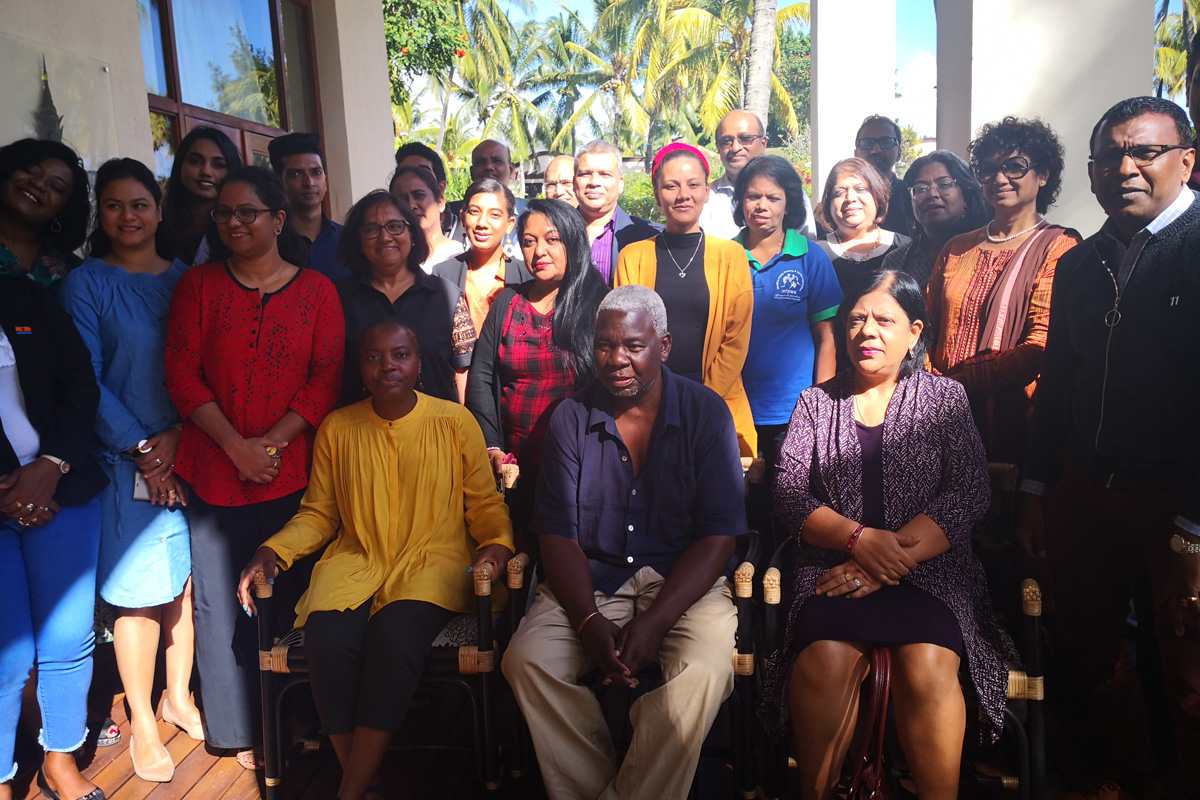In June 2017, Mauritius ratified the Protocol to the African Charter on Human and Peoples’ Rights on the Rights of Women in Africa (Maputo Protocol). In accordance with Article 26 (1) of the Maputo Protocol, the country has to submit its initial report at the 65th Session of the African Commission in October 2019.
To fulfill this reporting obligation, the Ministry of Gender Equality, Child Development and Family Welfare, in collaboration with the Centre for Human Rights, University of Pretoria, held a workshop to draft the country’s initial report on the Maputo Protocol from 9 to 12 July 2019. The workshop comes after an initial capacity enhancement workshop that took place in May 2019 to prepare a core team to begin the work of drafting the report. A technical assistant, Mr Roopanand Mahadew from the University of Mauritius, was also seconded to the country to support the report-writing efforts.
A total of 30 participants drawn from government ministries (Justice, Labor, Gender, Health, Police, Education and the Statistics office), academia, civil society organisations, faith-based organisations and representatives of marginalised groups (such as the Chagos community) participated in the drafting meeting.
The Centre was represented by Patience Mungwari Mpani, Oluwatomi Sodi and Annie M. Bipendu from the Women’s Rights Unit and Professor Michelo Hansungule, Professor at Human Rights Law at the University of Pretoria.
The workshop was officially opened by by Ms Bahadoor, the Acting Permanent Secretary in the Ministry of Gender Equality, Child Development and Family Welfare, who represented the Honourable Fazila Jeewa-Daureeawoo G.C.S.K, Vice-Prime Minister and Minister of Local Government and Outer Islands and also Minister of Gender Equality, Child Development and Family Welfare.
Following an introductory session on the principles, themes and reporting guidelines of the Maputo Protocol, as well as the art of drafting the report, the participants also reviewed a zero draft of the report prepared by the technical assistant.
Presentations were then made by invited experts to discuss key issues that needed to be included in the report. These included discussions on the ratification of the Maputo Protocol, the reservations Mauritius has and their implications, and any efforts towards the domestication of the Maputo Protocol. Other discussions focused on Mauritius’s other human rights obligations including ratification of the Protocol on the Rights of Persons with Disabilities and the Protocol on the Rights of Older Persons. Presentations were also made on key human rights challenges in the country including issues relating to violence against women, rights relating to marriage and divorce, access to justice, equality and non-discrimination and socio-economic rights. The discussions helped to raise important human rights issues and generate statistics and case law useful to developing a draft report.
Participants were divided into groups to draft sections of the report, based on their competencies and expertise. Groups presented their outcomes and from the discussions that ensued, revised write-ups were prepared and collated into a first draft. Gaps in this first draft report were identified and the groups are expected to work with the technical assistant to develop a revised draft which will be presented to a larger group of stakeholders for validation before being submitted as a final report.
More information on state reporting under the Maputo Protocol


